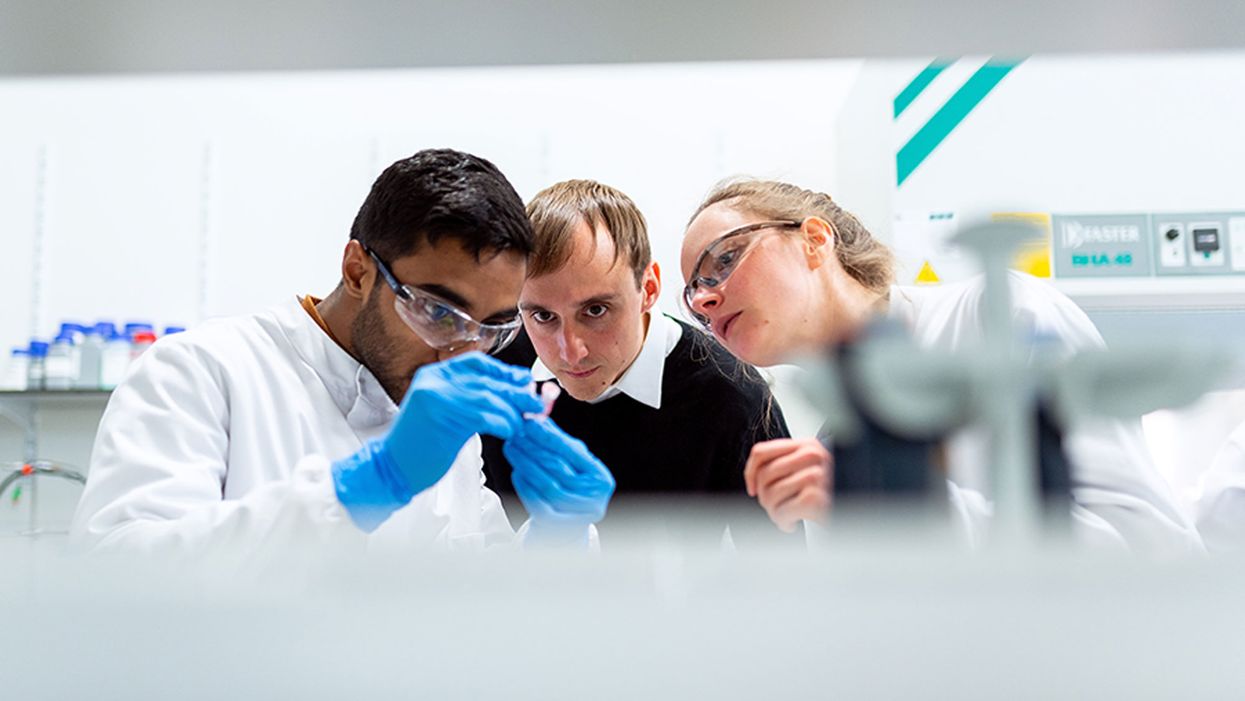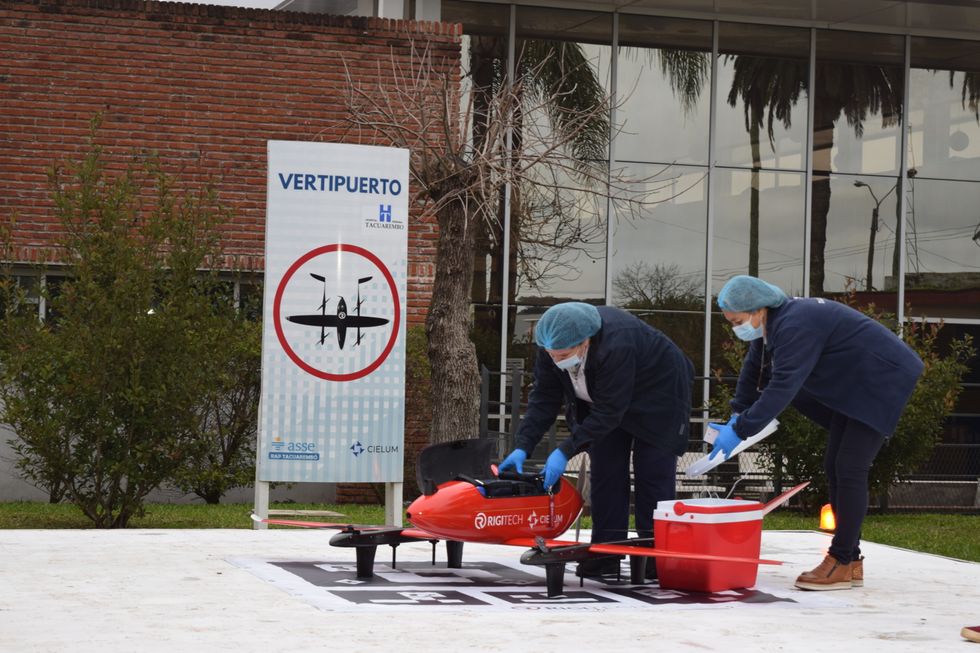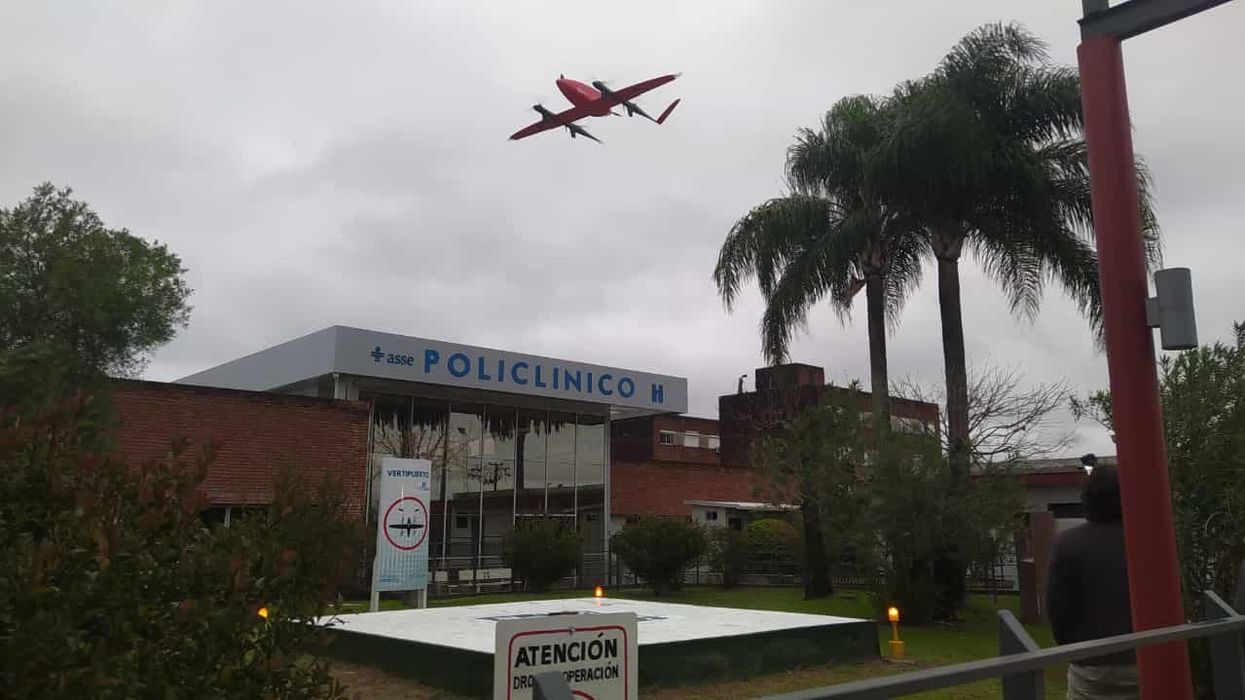Democratize the White Coat by Honoring Black, Indigenous, and People of Color in Science

Celebrating BIPOC's achievements in science are a strong first step to make science a guiding force for all.
This article is part of the magazine, "The Future of Science In America: The Election Issue," co-published by LeapsMag, the Aspen Institute Science & Society Program, and GOOD.
Journalists, educators, and curators have responded to Black Lives Matter by highlighting the history and achievements of Black Americans in a variety of fields, including science. The movement has also sparked important demands to address longstanding scientific inequities such as lack of access to quality healthcare and the disproportionate impact of climate change and environmental pollution on neighborhoods of Black, Indigenous, and people of color (BIPOC). Making such improvements requires bringing BIPOC into science and into positions of leadership in laboratories, graduate schools, medical practices, and clinical trials. The moment is right to challenge scientific gatekeepers to respond to Black Lives Matter by widening the pathways that determine who becomes a scientist, a researcher, or a clinician.
The scientific workforce has long lacked diversity, which in turn discourages Black people from pursuing such careers. Causes include a dearth of mentors and role models, preconceived notions that science is exclusive to white males, and subpar STEM education. Across race, gender, class, ability, and all other dimensions that inform how an individual navigates the world, from the familial to the global level, seeing role models who resemble you impacts what you strive for and believe possible. As Marian Wright Edelman stated, "You can't be what you can't see"—a truth with ever-increasing resonance since the U.S. is projected to be minority-white by 2045.
Black Americans have paved the way for the nation to lead in science and technology, despite marginalization and exclusion from textbooks. Physicist Dr. Shirley Ann Jackson invented the technology behind Caller I.D. and Call Waiting. Otis Boykin's patents made televisions and radios what they are today. Thanks to the 2017 movie Hidden Figures, millions of Americans know about Katherine Johnson, the NASA mathematician whose calculations were essential to the successful trajectory of the Apollo 11 mission.
However, highlighting past role models who were Black achievers is not enough and paints too static a picture—especially when examples of transformative work by contemporary BIPOC scientists serving BIPOC communities abound. Cognitive neuroscientist Dr. Jonathan Jackson founded the Community Access, Recruitment, & Engagement (CARE) Research Center with the goal to break down barriers so that people of color participate in clinical trials. Geneticist Dr. Nanibaa' Garrison's research creates ethical frameworks to overcome genomic injustices so Indigenous populations can benefit from genetic research. Computer scientists Joy Buolamwini and Dr. Timnit Gebru's research drew attention to reinforced racial bias in artificial intelligence, leading Microsoft, Amazon, and IBM this summer to halt use of their facial recognition software.
"Integration does not mean equality if the space being integrated isn't exuberantly down for the cause."
In order to honor concretely the ubiquitous public statements and commitments to justice and equity that flooded everyone's inboxes in early June, we must include traditionally underrepresented voices in all phases of science and its applications. For guidance, we would benefit from listening to activists leading, for example, climate marches and protests over toxic water. Indeed, science is at the core of the issues for which young BIPOC are mobilizing. We need to sit down with these individuals to gain their input on how the narratives, practices, and opportunities in science should change. As Zeena Abdulkarim, a youth climate change organizer working with Zero Hour, explains: "Minority communities are exposed to what the privileged and people in power are not; therefore these communities know the right steps to take in the change we need for the kickstart of true social and environmental justice."
Two other Black youth, for example, used the platform of the laboratory while in high school to mobilize for change. Elle Lanair Lett, now specializing in epidemiology as an M.D.-Ph.D. student in Philadelphia, was prompted by family prevalence of diabetes to research the genetics of pancreatic cells. Dr. Otana Jakpor, now an ophthalmology resident in Michigan, was motivated by the pollution in her hometown of Riverside, California, to research the pulmonary effects of indoor air purifiers, with findings that influenced California ozone regulations. Both became finalists in a national science fair, propelling them on paths toward science careers. These young scientists demonstrate how people's communities and lived experiences can shape trajectories of science research, which, in turn, determines which visions for society are materialized and popularized.
We can also gain insight from another childhood science fair veteran, self-proclaimed "Black STEMinist" Augusta Uwamanzu-Nna, who graduated from college in May and works as a bioengineer. In her view, "we need to shift the burden away from Black people and onto individuals who have contributed to our current reality—fundamentally requiring understanding, open-mindedness, a lack of bias, cultural competency, anti-racism, anti-homophobia, and many, many other things."
Celebrating BIPOC's accomplishments in science and cultivating new leadership today are strong first steps to make science a guiding force for all. Ms. Uwamanzu-Nna keenly reminds us, "Integration does not mean equality if the space being integrated isn't exuberantly down for the cause." Indeed, educational institutions, scientific companies, and medical centers must acknowledge and embrace their role in democratizing science in order for society to realize racial and scientific justice.
[Editor's Note: To read other articles in this special magazine issue, visit the beautifully designed e-reader version.]
In this week's Friday Five, breathing this way may cut down on anxiety, a fasting regimen that could make you sick, this type of job makes men more virile, 3D printed hearts could save your life, and the role of metformin in preventing dementia.
The Friday Five covers five stories in research that you may have missed this week. There are plenty of controversies and troubling ethical issues in science – and we get into many of them in our online magazine – but this news roundup focuses on scientific creativity and progress to give you a therapeutic dose of inspiration headed into the weekend.
Here are the promising studies covered in this week's Friday Five, featuring interviews with Dr. David Spiegel, associate chair of psychiatry and behavioral sciences at Stanford, and Dr. Filip Swirski, professor of medicine and cardiology at the Icahn School of Medicine at Mount Sinai.
Listen on Apple | Listen on Spotify | Listen on Stitcher | Listen on Amazon | Listen on Google
Here are the promising studies covered in this week's Friday Five, featuring interviews with Dr. David Spiegel, associate chair of psychiatry and behavioral sciences at Stanford, and Dr. Filip Swirski, professor of medicine and cardiology at the Icahn School of Medicine at Mount Sinai.
- Breathing this way cuts down on anxiety*
- Could your fasting regimen make you sick?
- This type of job makes men more virile
- 3D printed hearts could save your life
- Yet another potential benefit of metformin
* This video with Dr. Andrew Huberman of Stanford shows exactly how to do the breathing practice.
This podcast originally aired on March 3, 2023.
Breakthrough drones deliver breast milk in rural Uruguay
A drone hovers over Tacuarembó hospital in Uruguay, carrying its precious cargo: breast milk intended for children in remote parts of the country.
Until three months ago, nurse Leopoldina Castelli used to send bottles of breast milk to nourish babies in the remote areas of Tacuarembó, in northern Uruguay, by way of ambulances or military trucks. That is, if the vehicles were available and the roads were passable, which wasn’t always the case. Now, five days per week, she stands by a runway at the hospital, located in Tacuarembó’s capital, watching a drone take off and disappear from view, carrying the milk to clinics that serve the babies’ families.
The drones can fly as far as 62 miles. Long distances and rough roads are no obstacles. The babies, whose mothers struggle to produce sufficient milk and cannot afford formula, now receive ample supplies for healthy growth. “Today we provided nourishment to a significantly larger number of children, and this is something that deeply moves me,” Castelli says.
About two decades ago, the Tacuarembó hospital established its own milk bank, supported by donations from mothers across Tacuarembó. Over the years, the bank has provided milk to infants immediately after birth. It's helped drive a “significant and sustained” decrease in infant mortality, says the hospital director, Ciro Ferreira.
But these children need breast milk throughout their first six months, if not longer, to prevent malnutrition and other illnesses that are prevalent in rural Tacuarembó. Ground transport isn't quick or reliable enough to meet this goal. It can take several hours, during which the milk may spoil due to a lack of refrigeration.
The battery-powered drones have been the difference-maker. The project to develop them, financed by the UNICEF Innovation Fund, is the first of its kind in Latin America. To Castelli, it's nothing short of a revolution. Tacuarembó Hospital, along with three rural clinics in the most impoverished part of Uruguay, are its leaders.
"This marks the first occasion when the public health system has been directly impacted [by our technology]," says Sebastián Macías, the CEO and co-founder of Cielum, an engineer at the University Republic, which collaborated on the technology with a Uruguayan company called Cielum and a Swiss company, Rigitech.
The drone can achieve a top speed of up to 68 miles per hour, is capable of flying in light rain, and can withstand winds of up to 30 miles per hour at a maximum altitude of 120 meters.
"We have succeeded in embracing the mothers from rural areas who were previously slipping through the cracks of the system," says Ferreira, the hospital director. He envisions an expansion of the service so it can improve health for children in other rural areas.

Nurses load the drone for breast milk delivery.
Sebastián Macías - Cielum
The star aircraft
The drone, which costs approximately $70,000, was specifically designed for the transportation of biological materials. Constructed from carbon fiber, it's three meters wide, two meters long and weighs 42 pounds when fully loaded. Additionally, it is equipped with a ballistic parachute to ensure a safe descent in case the technology fails in midair. Furthermore, it can achieve a top speed of 68 miles per hour, fly in light rain, and withstand winds of 30 miles per hour at a height of 120 meters.
Inside, the drones feature three refrigerated compartments that maintain a stable temperature and adhere to the United Nations’ standards for transporting perishable products. These compartments accommodate four gallons or 6.5 pounds of cargo. According to Macías, that's more than sufficient to carry a week’s worth of milk for one infant on just two flights, or 3.3 pounds of blood samples collected in a rural clinic.
“From an energy perspective, it serves as an efficient mode of transportation and helps reduce the carbon emissions associated with using an ambulance,” said Macías. Plus, the ambulance can remain available in the town.
Macías, who has led software development for the drone, and three other technicians have been trained to operate it. They ensure that the drone stays on course, monitor weather conditions and implement emergency changes when needed. The software displays the in-flight positions of the drones in relation to other aircraft. All agricultural planes in the region receive notification about the drone's flight path, departure and arrival times, and current location.
The future: doubling the drone's reach
Forty-five days after its inaugural flight, the drone is now making five flights per week. It serves two routes: 34 miles to Curtina and 31 miles to Tambores. The drone reaches Curtina in 50 minutes while ambulances take double that time, partly due to the subpar road conditions. Pueblo Ansina, located 40 miles from the state capital, will soon be introduced as the third destination.
Overall, the drone’s schedule is expected to become much busier, with plans to accomplish 20 weekly flights by the end of October and over 30 in 2024. Given the drone’s speed, Macías is contemplating using it to transport cancer medications as well.
“When it comes to using drones to save lives, for us, the sky is not the limit," says Ciro Ferreira, Tacuarembó hospital director.
In future trips to clinics in San Gregorio de Polanco and Caraguatá, the drone will be pushed to the limit. At these locations, a battery change will be necessary, but it's worth it. The route will cover up to 10 rural Tacuarembó clinics plus one hospital outside Tacuarembó, in Rivera, close to the border with Brazil. Currently, because of a shortage of ambulances, the delivery of pasteurized breast milk to Rivera only occurs every 15 days.
“The expansion to Rivera will include 100,000 more inhabitants, doubling the healthcare reach,” said Ferreira, the director of the Tacuarembó Hospital. In itself, Ferreira's hospital serves the medical needs of 500,000 people as one of the largest in Uruguay's interior.
Alejandro Del Estal, an aeronautical engineer at Rigitech, traveled from Europe to Tacuarembó to oversee the construction of the vertiports – the defined areas that can support drones’ take-off and landing – and the first flights. He pointed out that once the flight network between hospitals and rural polyclinics is complete in Uruguay, it will rank among the five most extensive drone routes in the world for any activity, including healthcare and commercial uses.
Cielum is already working on the long-term sustainability of the project. The aim is to have more drones operating in other rural regions in the western and northern parts of the country. The company has received inquiries from Argentina and Colombia, but, as Macías pointed out, they are exercising caution when making commitments. Expansion will depend on the development of each country’s regulations for airspace use.
For Ferreira, the advantages in Uruguay are evident: "This approach enables us to bridge the geographical gap, enhance healthcare accessibility, and reduce the time required for diagnosing and treating rural inhabitants, all without the necessity of them traveling to the hospital,” he says. "When it comes to using drones to save lives, for us, the sky is not the limit."

